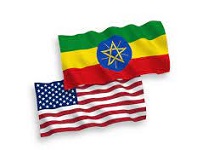Below is an overview of the industries with the best prospects, big government purchases, infrastructure projects, and commercial opportunities as suggested by the US International Trade Administration.
Agricultural equipment, computer equipment, food goods, machinery, trucks, and vehicle/vehicle components are among the top American exports to Ethiopia (non-electrical). Ethiopia’s infrastructure, energy, aviation, healthcare, and tourism sectors, as well as agriculture and geoprocessing, present the most attractive business potential.
Government procurement
The largest consumer and market for American products is the Government of Ethiopia (GOE) and its public institutions. The GOE makes significant investments in significant social and economic infrastructure projects, such as power generation, industrial parks and zones, housing development, water and irrigation, roads and railways, airports and dry ports, telecommunication and internet networks, as well as fertilizer manufacturing facilities.
There are opportunities for American businesses to take part in government procurements. American businesses rely largely on high-level advocacy help to gain government contracts or reverse unfair or opaque tender awards caused by flaws in the tendering process.
The GOE is open to suggestions for tender bids that include financing alternatives. Normally, bidders that do not offer 100% finance are at a competitive disadvantage. In addition, there have reportedly been problems with unfairness and lack of openness in the evaluation of tenders. Therefore, before the tender assessment process, bidders should think about collaborating with the Commercial Service Ethiopia and using the U.S. Commerce Department advocacy procedure.
By confirming three of its board of directors, the U.S. Senate restored the U.S. Exim bank’s full financing capacity in 2019. With increasing capacity, the Overseas Private Investment Corporation’s successor organization, the U.S. International Development Finance Corporation (DFC), has demonstrated a greater interest in funding projects in Ethiopia with U.S. equity investment.
Agriculture
Ethiopia offers a wealth of agricultural resources and a variety of natural zones where agriculture can be grown. Land can be leased for up to 99 years from regional and city administration bureaus, and investment licenses can be obtained from the Ethiopian Investment Commission.
In terms of equity and transparency, the GOE has recently faced substantial challenges with regard to land distribution, compensation, and relocation. The respect for land rights also differs within Ethiopia due to the country’s strong regional autonomy. Before making investments requiring land use and/or migration, American businesses should conduct their due diligence.
One of the most important industries for Ethiopia’s economic development and progress is energy. In the medium term, we anticipate a major growth in power production. Ethiopia has a lot of potential for renewable energy, particularly hydroelectric (renewable sources now provide over 90% of Ethiopia’s energy needs), and it wants to take advantage of these resources by expanding the installed capacity of renewable energy sources.
Aviation
The GOE publishes tenders for a number of renewable energy projects, with the project quality and experience being the main criteria for tender evaluation.
With an average growth rate of 20%, the aviation industry is experiencing rapid expansion due to the rising demand for both passenger and freight air travel. The expansion of cargo transport operations has allowed the industry to keep expanding throughout the COVID pandemic.
Given that operational capacity may regain 80% to 100% of its pre-crisis capacity as opposed to 70% of its pre-pandemic capacity, FY/2022 is anticipated to be better for the sector than FY/2021.
Continental free trade area
The 55 African nations that have signed the Africa Continental Free Trade Agreement (AfCFTA), which went into effect in January 2021, are now a part of a single trading region. Ethiopia has approved the AfCFTA, boosting trade between Ethiopia and other countries on the continent. U.S. businesses now have the chance to use Ethiopia as a regional trade hub to access adjacent countries thanks to the AfCFTA.
The AU is mandated to seek continental integration as one of its key priorities, as stated in its long-term strategy Agenda 2063. The African Continental Free Trade Area (AfCFTA), which went into effect in January 2021, was established by the AU to accomplish this purpose. The AfCFTA aspires to integrate Africa’s economies, unify rules, and lower trade obstacles like tariffs.
By the middle of 2021, the AfCFTA had been ratified by 43 nations and had been signed by 54 AU members. The chapters of the AfCFTA will influence trade and investment in critical areas, including products and services, intellectual property rights, investment, competition policy, and digital commerce, for U.S. businesses doing business in Africa.
By offering technical assistance to the AU and encouraging U.S. private sector participation with the AU on the AfCFTA, the U.S. Mission to the AU (USAU) supports the AfCFTA, according to the US International Trade Administration’s Country Commercial Guide

